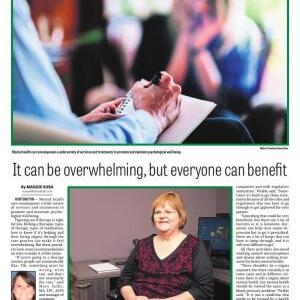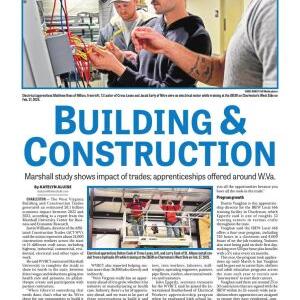CHARLESTON ňňň˝ĘÓƵ” West Virginia lawmakers have fast-tracked a bill toward becoming law that would allow the state to take over regulation of certain radioactive materials from the U.S. Nuclear Regulatory Commission.
The House of Delegates on Monday suspended a state constitutional rule requiring bills be read three separate days to pass , which would make West Virginia an ňňň˝ĘÓƵśagreement stateňňň˝ĘÓƵť with the Nuclear Regulatory Commission and establish a state radiation regulatory system under the Department of Health.
Agreement states issue licenses, perform inspections and enforce safety regulations over academic, industrial and medical uses of radioactive material. The Houseňňň˝ĘÓƵ™s move came less than two hours into a special legislative session called by Gov. Jim Justice and even sooner after the text of the bill became available on the West Virginia Legislatureňňň˝ĘÓƵ™s website.
HB 208 was the only bill out of eight passed by the House Monday that isnňňň˝ĘÓƵ™t a supplemental appropriations measure. The Republican-supermajority House passed the bill in a 73-18 vote that followed a nearly hour-long House floor debate in which members of both parties voiced procedural and environmental health concerns with the legislation.
Under HB 208, the Nuclear Regulatory Commission would retain regulatory authority over nuclear power plants, reactors and fuel cycle facilities.
HB 208 is similar to bills the House passed in 2023 that also would have made West Virginia an agreement state. But those bills, and , died in the Senate.
After the House passed HB 208 Monday afternoon, the Senate adjourned until Sunday at 6 p.m. without considering the bill.
House members backing HB 208 noted in chamber floor speeches Monday its similarity to those past bills, which the House passed overwhelmingly.
But unlike those bills, HB 208 would designate the Department of Health as the stateňňň˝ĘÓƵ™s radiation control agency instead of the Department of Environmental Protection.
West Virginiaňňň˝ĘÓƵ™s Department of Health came into existence at the start of 2024 after the erstwhile Department of Health and Human Resources split into that agency and two others. The Department of Healthňňň˝ĘÓƵ™s radiological health program already oversees registration and inspection of all facilities with radiation machines used in the state.
Billňňň˝ĘÓƵ™s potential fiscal impact is not known
HB 208 would allow the Department of Health to set up fee schedules for licensures, registrations and inspections required under the bill.
In a September 2022 interim legislative session meeting, a Nuclear Regulatory Commission representative explained to lawmakers how West Virginia can take over regulation from the commission of some uses of radioactive materials.
Duncan White, senior health physicist at the Nuclear Regulatory Commission, reported to lawmakers that there were 166 licensees with locations of use and 622 generally licensed devices at 73 facilities requiring registration in West Virginia.
Generally licensed devices contain radioactive material used to measure or control the thickness or chemical composition of certain items. They include density and fill-level gauges, as well as exit signs.
The commission collected $1.3 million from licensees in fiscal year 2021, according to White.
House Energy and Manufacturing Committee Chairman Bill Anderson, R-Wood, noted that figure on the House floor Monday during a session in which he urged passage of the bill.
In response to questioning from Delegate and bill opponent Evan Hansen, D-Monongalia, Anderson said he couldnňňň˝ĘÓƵ™t say whether fee revenues the Department of Health would collect under HB 208 would be enough to cover any increased costs incurred through its new duties under the legislation.
ňňň˝ĘÓƵśIňňň˝ĘÓƵ™m sure we will hear from them if theyňňň˝ĘÓƵ™re not,ňňň˝ĘÓƵť Anderson replied.
A Department of Environmental Protection fiscal note for HB 2896 estimated it would cost $1.23 million to establish a new state radiation regulatory program and $1.1 million every year after. The agency said it didnňňň˝ĘÓƵ™t know how much radiation-producing equipment there was in the state and couldnňňň˝ĘÓƵ™t reasonably estimate how much revenue the new program would generate.
Opponents question fast-track of bill during special session
Those opposing the bill on the House floor questioned why the bill was being accelerated to quick passage during a special legislative session instead of getting committee vetting during the annual 60-day regular legislative session that begins every winter.
ňňň˝ĘÓƵś[A] topic like this thatňňň˝ĘÓƵ™s dealing with radioactive waste deserves a greater amount of scrutiny and discussion and investigation just to make sure weňňň˝ĘÓƵ™re getting it right,ňňň˝ĘÓƵť Hansen said on the House floor.
The West Virginia Citizen Action Group, a progressive advocacy organization, mobilized quickly against HB 208 Monday, pushing an online petition to lobby the Senate and Justice to hold off on the move.
Citizen Action Group executive director Gary Zuckett called the billňňň˝ĘÓƵ™s rapid advancement ňňň˝ĘÓƵśpotentially recklessňňň˝ĘÓƵť since it would grant regulatory power to a first-year agency.
ňňň˝ĘÓƵśThe timing is questionable,ňňň˝ĘÓƵť Zuckett said in an email. ňňň˝ĘÓƵśWhy must this be considered during an emergency legislature session before the election?ňňň˝ĘÓƵť
House Technology and Infrastructure Chairman Daniel Linville, R-Cabell, argued the bill was ňňň˝ĘÓƵśwell-vettedňňň˝ĘÓƵť given its similarity to past measures the House had approved in near-unanimous votes.
ňňň˝ĘÓƵśBy [regulatory] primacy, we can have West Virginians looking after West Virginians,ňňň˝ĘÓƵť Anderson said in closing the floor debate on the bill.
There are 39 agreement states, and three others ňňň˝ĘÓƵ” including West Virginia ňňň˝ĘÓƵ” have submitted a letter of intent to become one, according to Nuclear Regulatory Commission data.
The Atomic Energy Act of 1954 allows the Nuclear Regulatory Commission to assist states that aim to become agreement states. Kentucky became the first agreement state in 1962. All states bordering West Virginia are agreement states.














